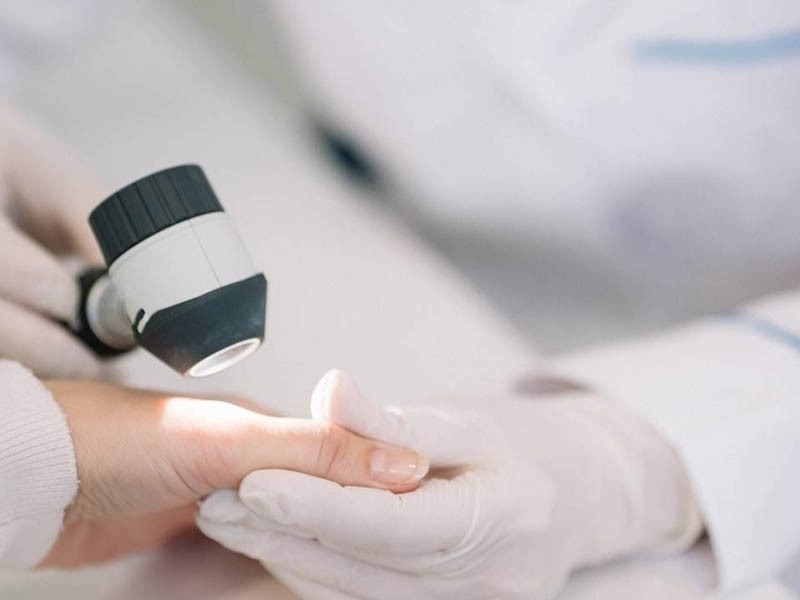Clinic Consultation in Orillia / ON stands out as a leading provider of Dermatologist care, dedicated to addressing a wide spectrum of skin, hair, and nail conditions. Our clinic is home to board-certified dermatologists who bring a wealth of experience and expertise in diagnosing and treating dermatological issues ranging from common ailments such as acne and eczema to more complex conditions like psoriasis and skin cancer. Leveraging advanced diagnostic tools and treatment technologies, Clinic Consultation is committed to delivering personalized care plans that optimize health outcomes and enhance the natural beauty of our patients. We prioritize patient education, ensuring individuals are well-informed about their conditions and the available treatment options. Our goal is to provide a comfortable and supportive environment where patients in Orillia / ON, can receive the highest standard of dermatological care, fostering healthy skin for life.
Dermatologist in Orillia / ON

Watch our video about Dermatologist
Dermatologist in Orillia / ON
A dermatologist specializes in diagnosing and treating conditions related to the skin, hair, and nails. They address both medical and cosmetic issues, ranging from acne, eczema, and psoriasis to skin cancer and hair loss. Additionally, dermatologists perform surgical procedures to remove skin lesions and offer cosmetic treatments like laser therapy, chemical peels, and fillers to improve skin appearance and treat conditions like wrinkles or scars.
Dermatologists also provide preventive care by advising on skincare routines and sun protection to avoid future skin issues.
When Should I See a Dermatologist?
You should see a dermatologist when experiencing persistent skin issues such as acne, rashes, or itchy, dry skin that doesn't respond to over-the-counter treatments. If you notice changes in moles, such as growth, discoloration, or irregular borders, it’s important to seek evaluation for skin cancer.
Additionally, anyone with concerns about hair thinning, scalp problems, or nail abnormalities should consult a dermatologist. Regular check-ups are advised for individuals with a family history of skin conditions or skin cancer to monitor any changes in the skin.
What Conditions are Treated by a Dermatologist?
Acne and Rosacea
Acne is a common skin condition that occurs when pores are clogged with oil and dead skin cells. Treatment ranges from topical creams and medications to procedures like chemical peels or laser therapy for severe cases. Rosacea is a chronic skin condition that causes redness and visible blood vessels, particularly on the face. Dermatologists manage rosacea with topical or oral medications and recommend skincare routines to minimize flare-ups.
Psoriasis and Eczema
Psoriasis is an autoimmune condition that causes the rapid buildup of skin cells, leading to red, scaly patches. Treatment includes topical treatments, light therapy, or systemic medications to control symptoms. Eczema, or atopic dermatitis, results in inflamed, itchy skin. It is treated with moisturizers, corticosteroids, and lifestyle changes to reduce irritation and flare-ups.
Skin Cancer
Skin cancer, including melanoma, basal cell carcinoma, and squamous cell carcinoma, is commonly treated by dermatologists. Regular skin checks help detect cancer early. Treatments range from surgical removal of cancerous lesions to radiation or chemotherapy, depending on the stage of the cancer.
Hair Loss (Alopecia)
Alopecia, or hair loss, can result from genetic factors, stress, or autoimmune diseases. Dermatologists diagnose the cause and offer treatments such as topical solutions, oral medications, or advanced treatments like platelet-rich plasma (PRP) therapy or hair transplants.
Atopic Dermatitis and Allergies
Atopic dermatitis is a chronic skin condition that leads to dry, itchy skin. Dermatologists recommend treatment with emollients, prescription creams, and antihistamines. For skin allergies, they conduct patch testing to identify allergens and prescribe appropriate treatments to relieve symptoms.
Warts and Benign Lesions
Warts, caused by viral infections, and benign skin lesions like cysts or lipomas, are frequently treated with cryotherapy, laser removal, or minor surgical procedures. These conditions are usually non-threatening but may require removal for aesthetic or comfort reasons.
What Exams Does a Dermatologist Perform?
Dermatologists perform a variety of exams to diagnose skin conditions. One of the most common is dermoscopy, where a special magnifying tool is used to examine moles and skin lesions for signs of cancer. Skin biopsies are often conducted to confirm diagnoses of more serious conditions like skin cancer or autoimmune diseases.
Other tests include patch testing for identifying skin allergies and fungal or bacterial cultures to determine the cause of infections. For hair loss, scalp exams are performed, and sometimes blood tests are recommended to check for underlying conditions that may be affecting skin health.
When Should You Seek a Dermatologist?
It’s recommended to seek a dermatologist when skin, hair, or nail conditions persist despite home treatment. Changes in moles, growths, or new skin spots, especially those that are irregular in color or shape, should be checked to rule out skin cancer. Individuals with a history of sun exposure or family history of skin diseases should also schedule regular check-ups.
Dermatologists are also crucial for those seeking treatment for cosmetic concerns such as wrinkles, dark spots, or scars, as they offer both preventive and corrective skincare solutions.
What to Ask a Dermatologist During Your First Appointment?
In your first visit, you can ask about the cause of any symptoms, recommended treatments, and how to prevent recurrence. Questions about daily skincare routines, products suitable for your skin type, and how to manage sun exposure are also useful. For cosmetic concerns, inquire about available procedures, potential results, and how to maintain healthy skin long-term.
At Clinic Consultation, our dermatologists are available for appointments to help with both medical and cosmetic skin needs. Schedule a consultation today to take care of your skin with the best specialists.
Click the button below to schedule your appointment online.